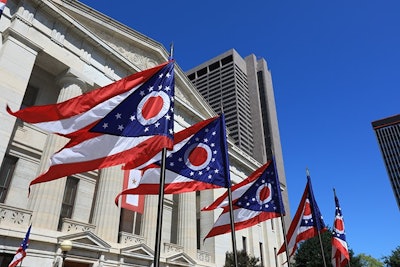
The Ohio Department of Commerce issued an additional provisional Level II medical marijuana cultivation license July 18 to Pure OH LLC after the company appealed its initial denial of licensure through a Revised Code 119 hearing.
During the state’s original application period, Pure OH LLC applied for a Level II cultivation license to grow up to 3,000 square feet of medical marijuana at an East Palestine location in Columbiana County (along the Ohio-Pennsylvania border). In its initial scoring, the company did not receive the minimum qualifying score on the security section of its application, and therefore was not issued a license when the awards were announced in November 2017.
The security plan portion of the application contains various security transportation questions regarding lock boxes, GPS features and vehicle insurance, according to Stephanie Gostomski, the department’s assistant director of communications. In the initial review of its application, Pure OH scored an 11, one point shy of the 12 the company needed to make it minimally qualified, Gostomski said.
“They had a high enough score to be qualified for a license, but you have to meet the minimum requirements in all business plans to receive a provisional license,” she added.
Pure OH then appealed the scoring decision, requesting a 119 administrative hearing. Through this process, the company demonstrated that its application included elements that should have earned a higher score in the application’s security section, and the additional points would have given Pure OH a sufficient score for a Level II license.
“They presented their information, and the report and recommendation said that they in fact proved that their application showed the minimum requirements for this security section so that their security plan is entitled to a score of 12 or more points,” Gostomski said. “That report and recommendation were then issued to our director, and she agreed with the findings and issued them a provisional license.”
Ohio’s 119 hearings are not specific to the medical marijuana program, Gostomski added—they are a standard process for all state agencies to ensure accuracy, especially within a competitive program such as this.
“This was a highly competitive program,” Gostomski said. “We had 185 apply. By law, the initial issuance was 12 Level I’s and 12 Level II’s, but it’s important that any business that applied has a right to find out why they were scored the way they were, and to take it a step further, if they believe what was asked of them wasn’t scored properly, they can present this to this hearing office within this 119 hearing.”
“The Department of Commerce, our director, wants the most qualified applicants to be in fact the cultivators in the state of Ohio, and that’s exactly why this appeal hearing and this appeal process is in place,” she added.
Pure OH is the 13th company that has been awarded a provisional Level II cultivation license in the state. The Ohio Department of Commerce awarded an additional Level I cultivation license to PharmaCann LLC in May due to an unrelated application scoring error. (Level I licenses allow cultivators to grow up to 25,000 square feet of medical marijuana canopy space.)
Pure OH now has nine months to build out a facility as outlined in their application; once they deem themselves ready for operation, the Department of Commerce will inspect the facility and decide whether to grant the company a final certificate of operation.
“We have a compliance team that will go out and ensure that everything they put in the application is presented in their build,” Gostomski said. “They have to meet all statutory requirements, local requirements, and if they prove that they met everything, then we issue them a certificate of operation and that’s when they can begin to grow the product.”
Top Image: © aceshot | Adobe Stock


























